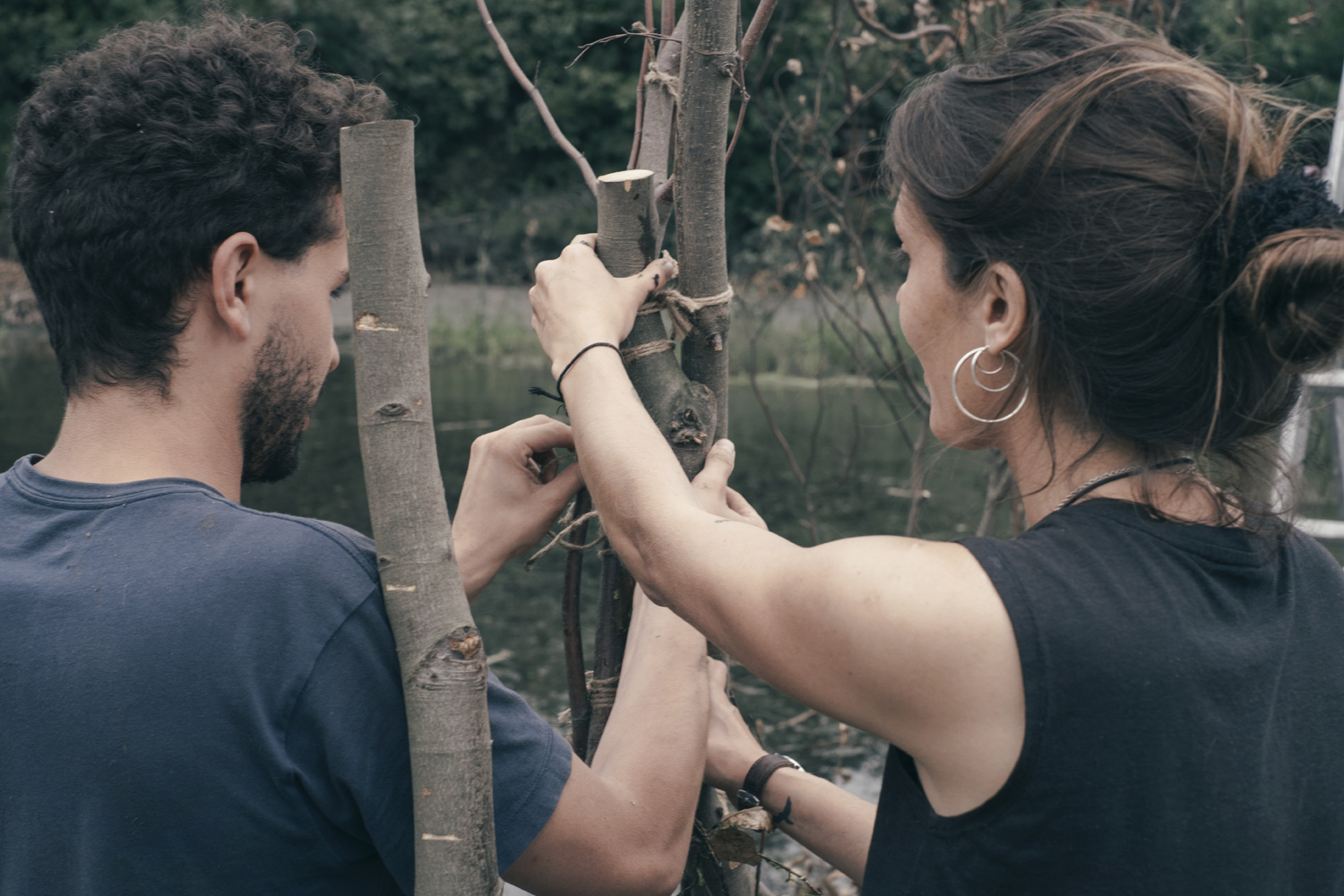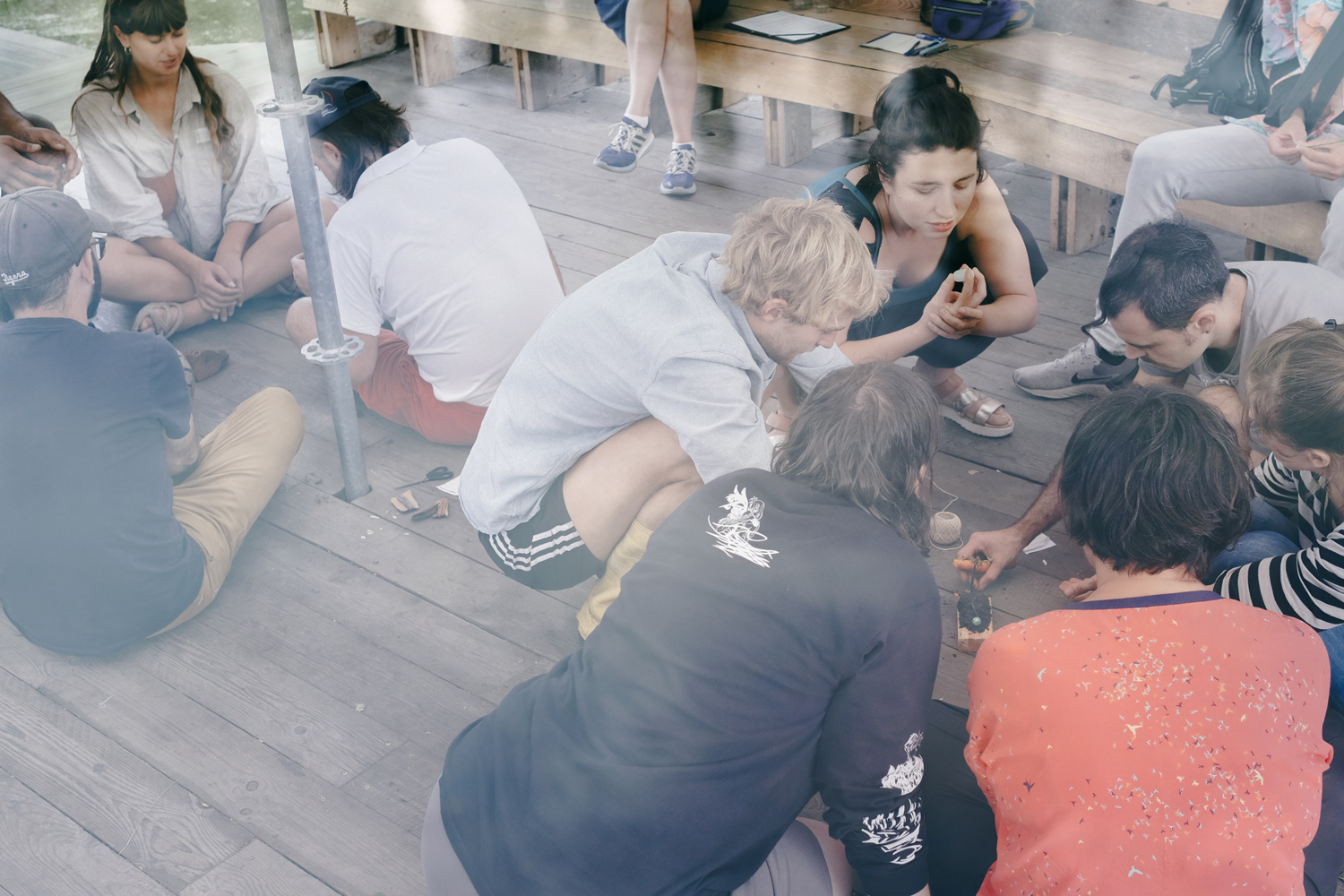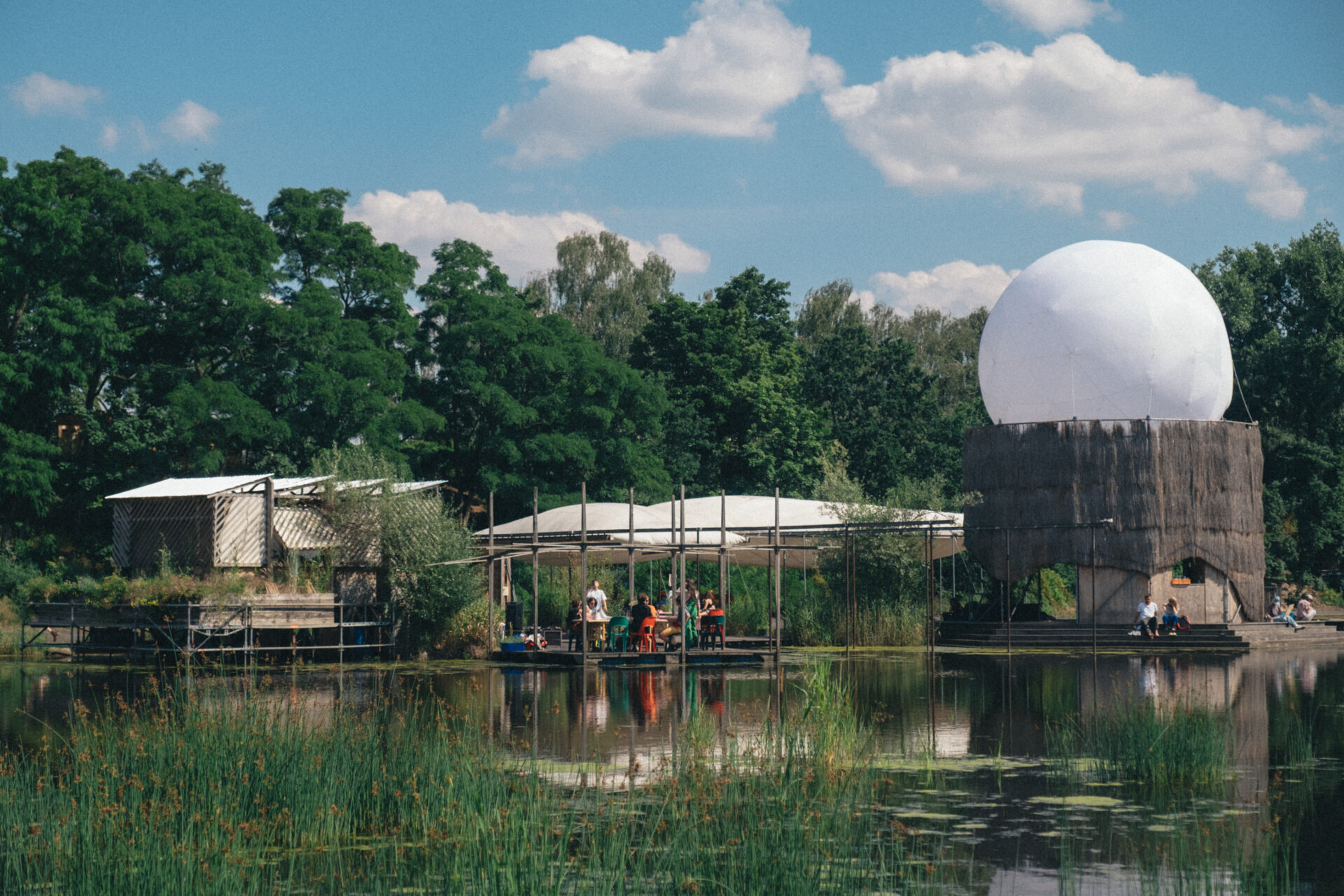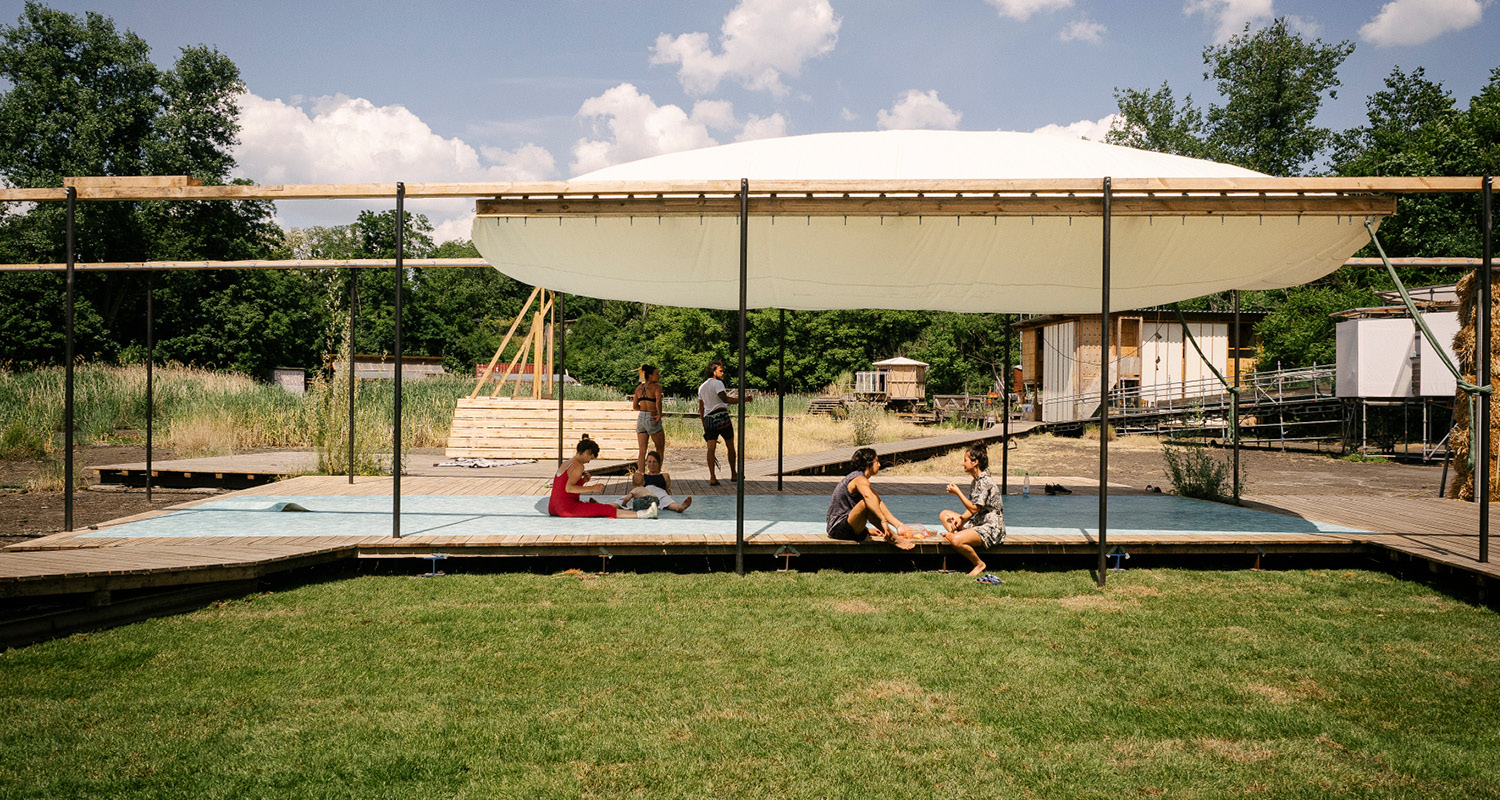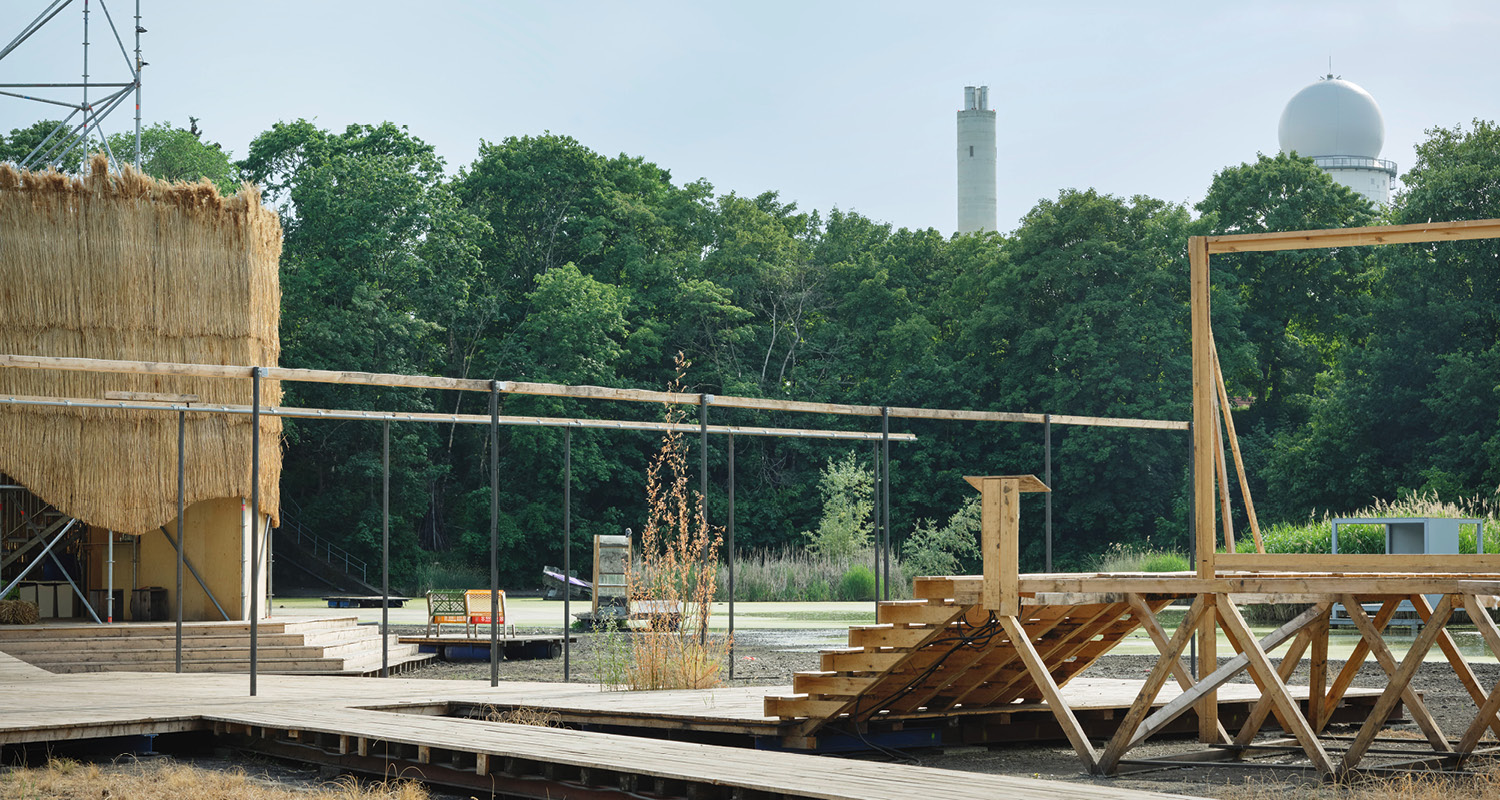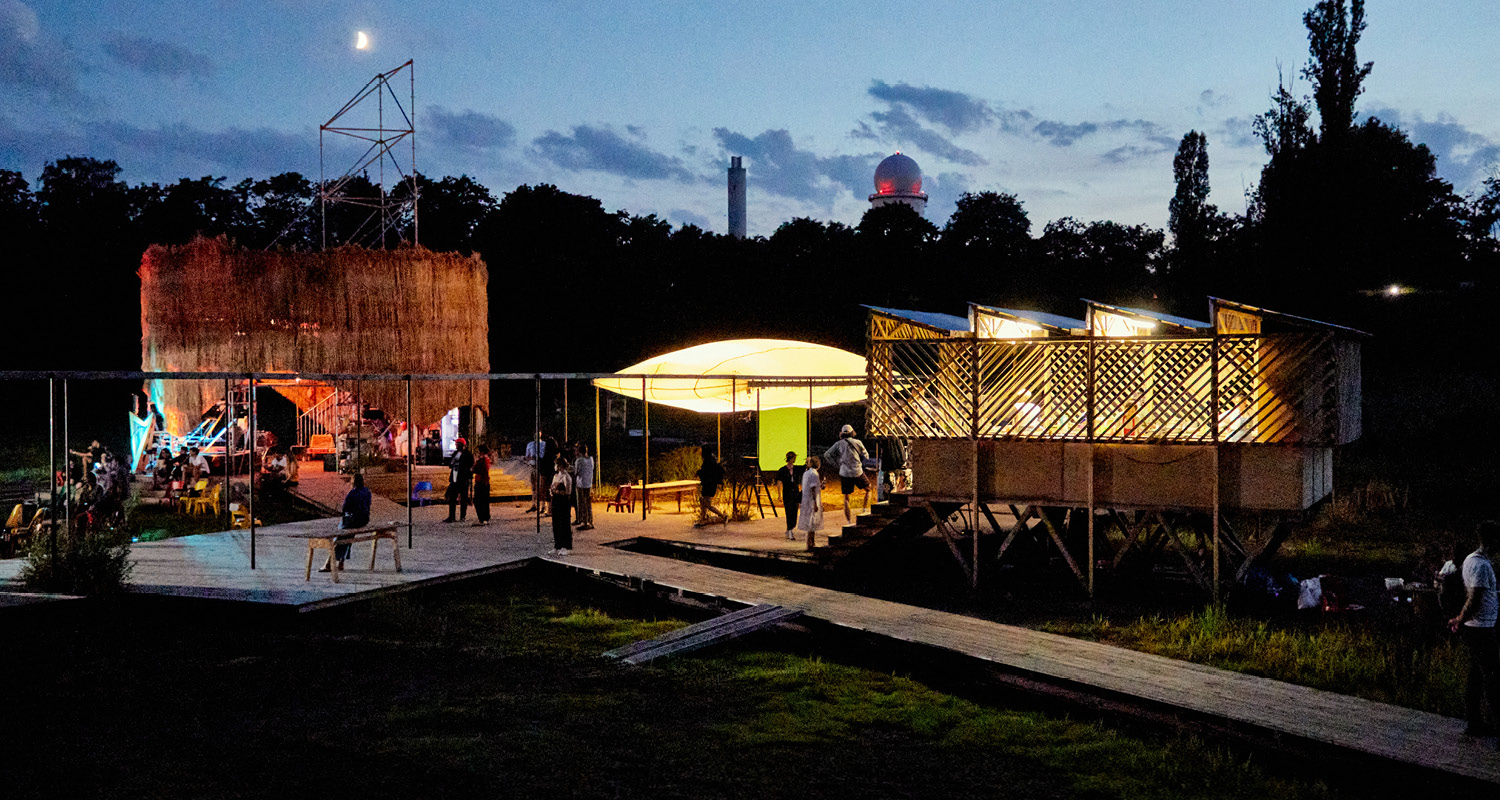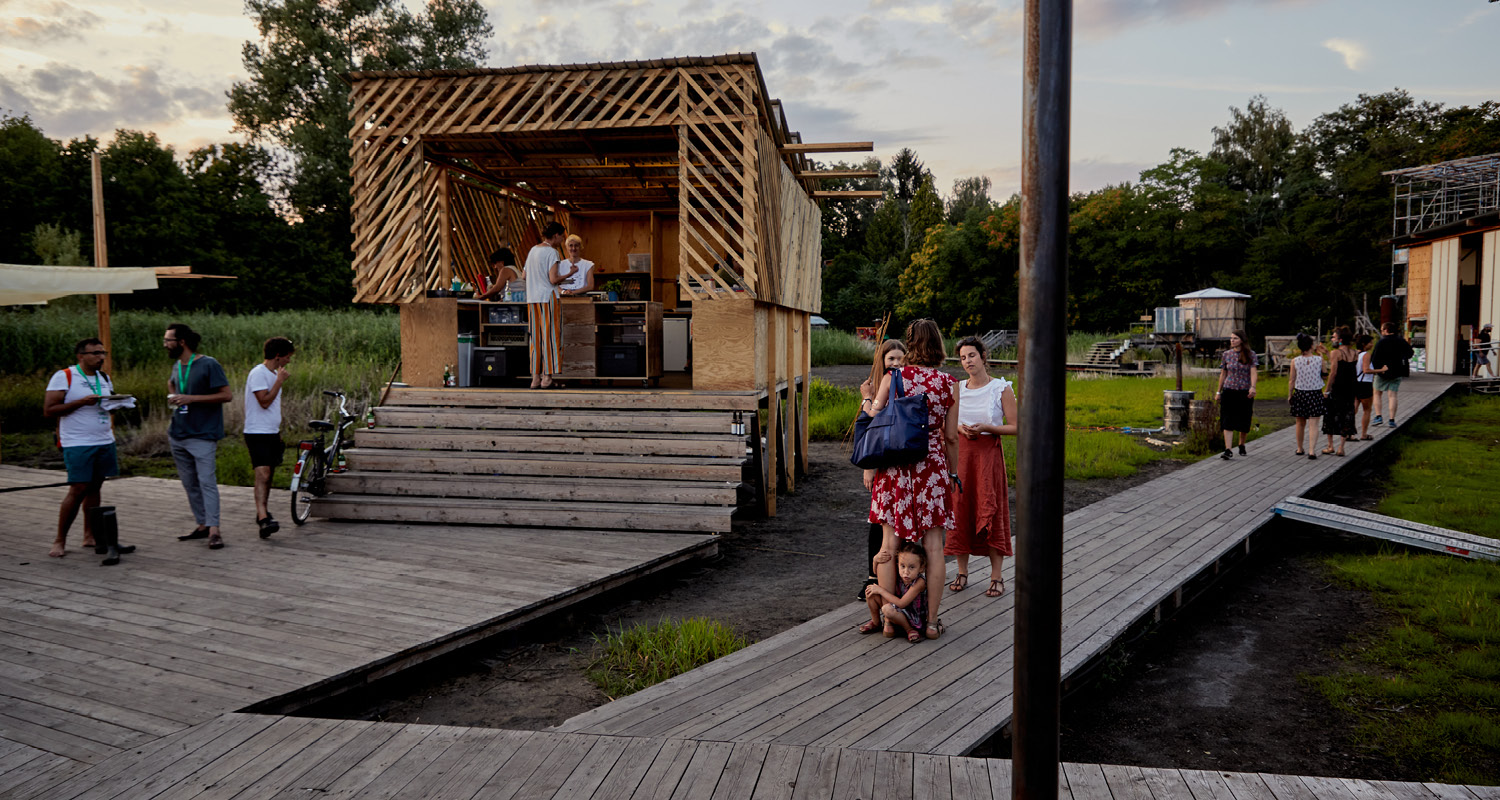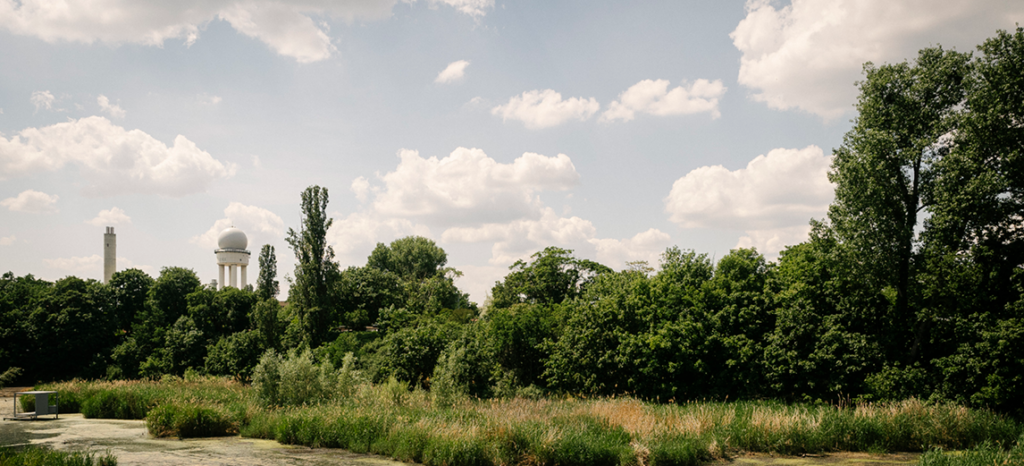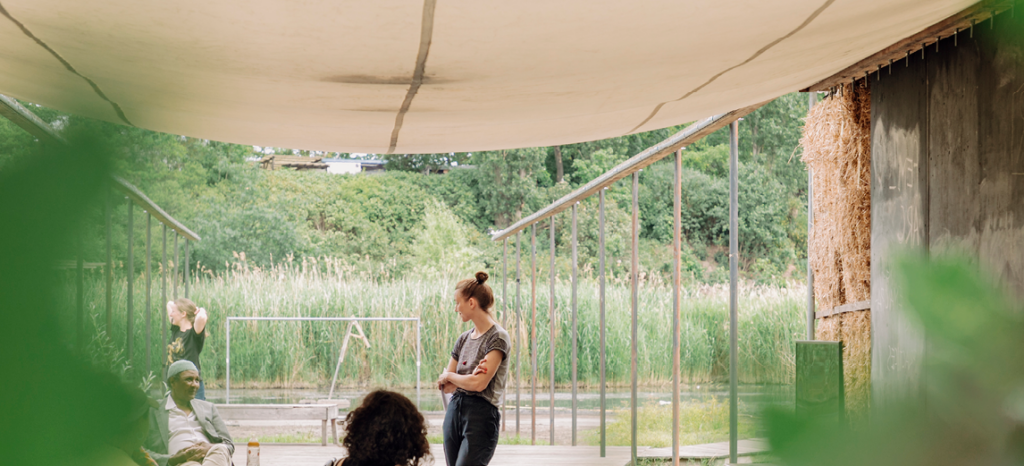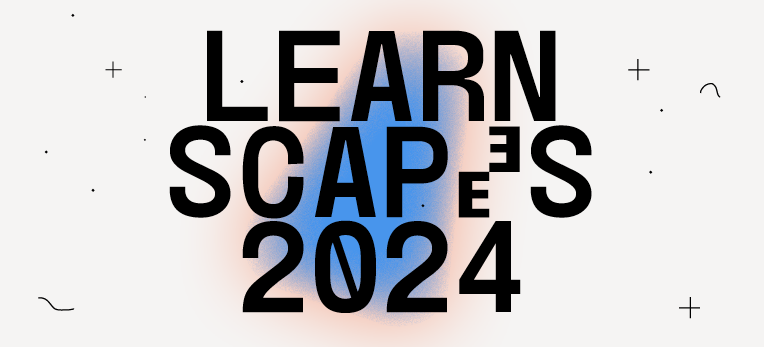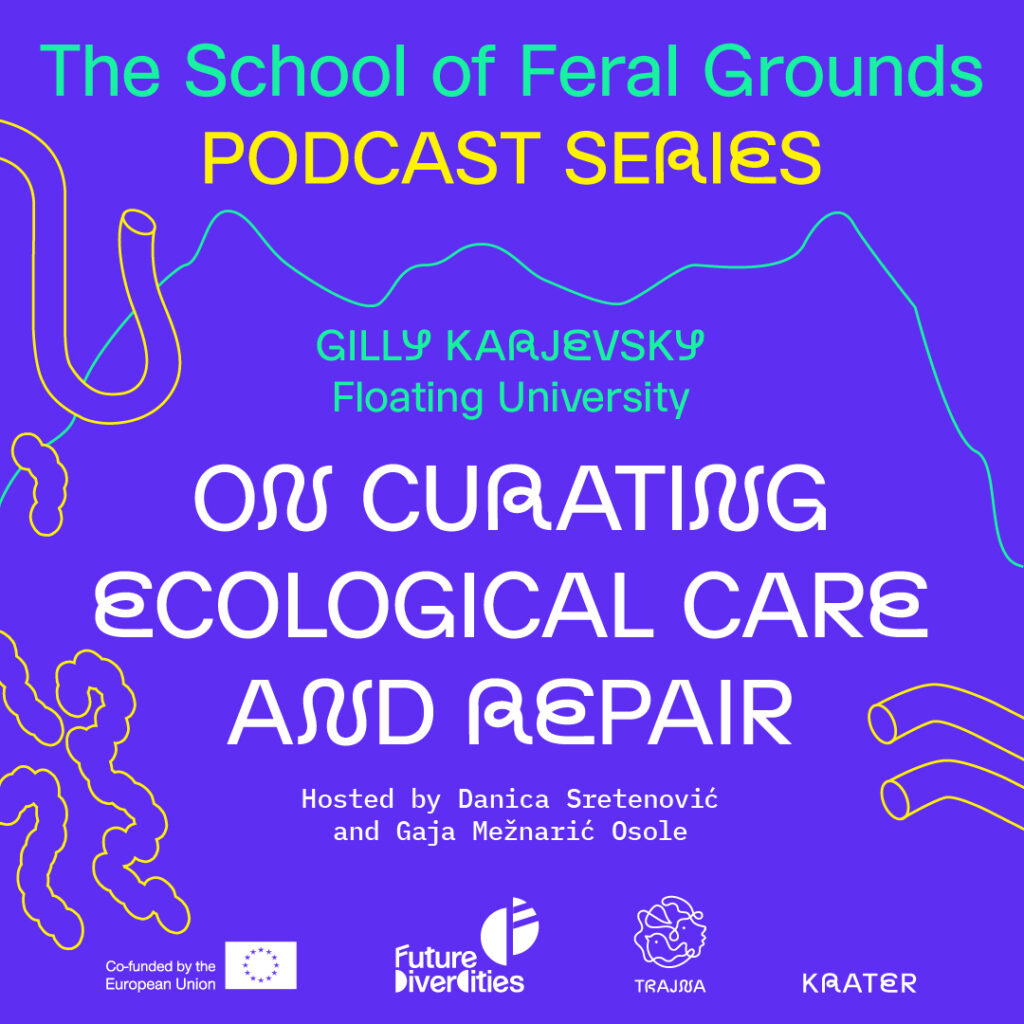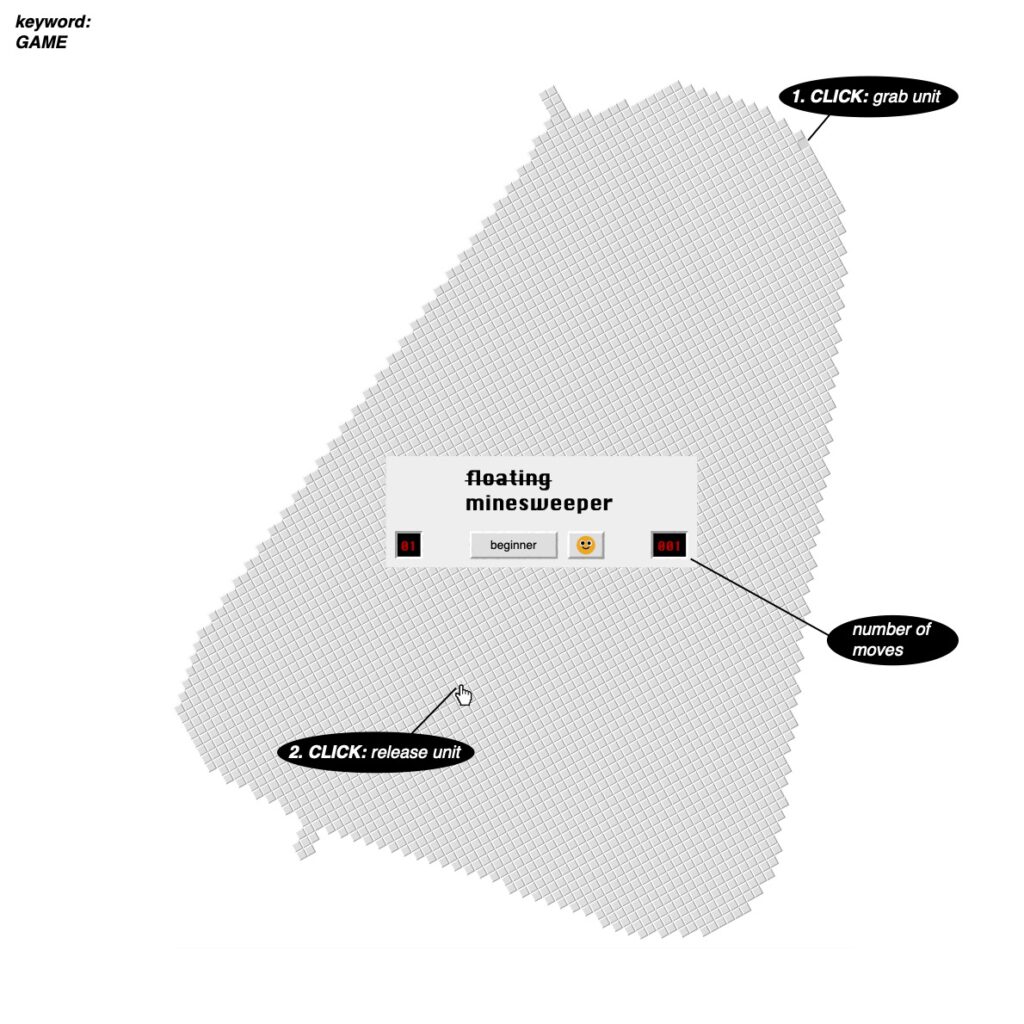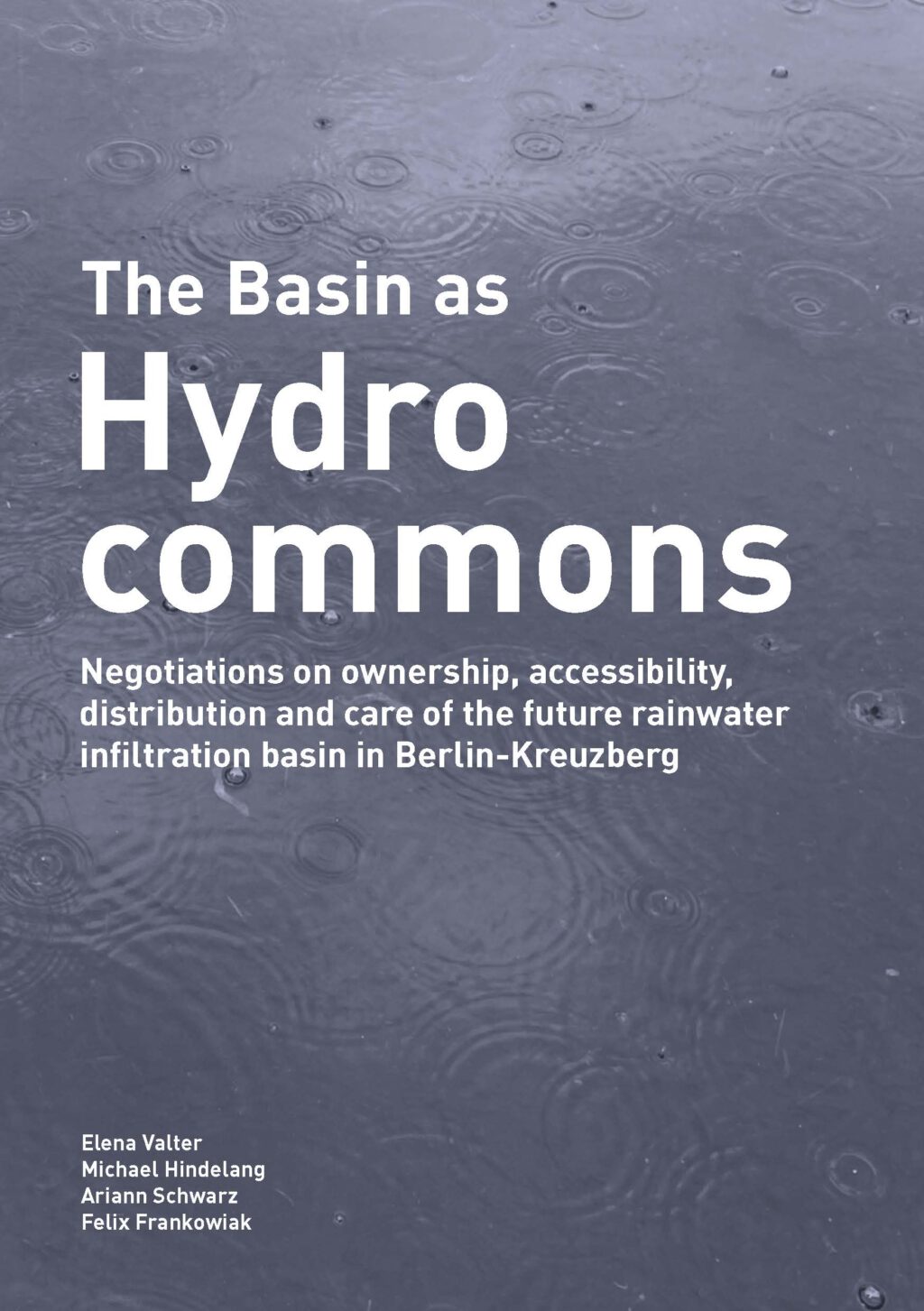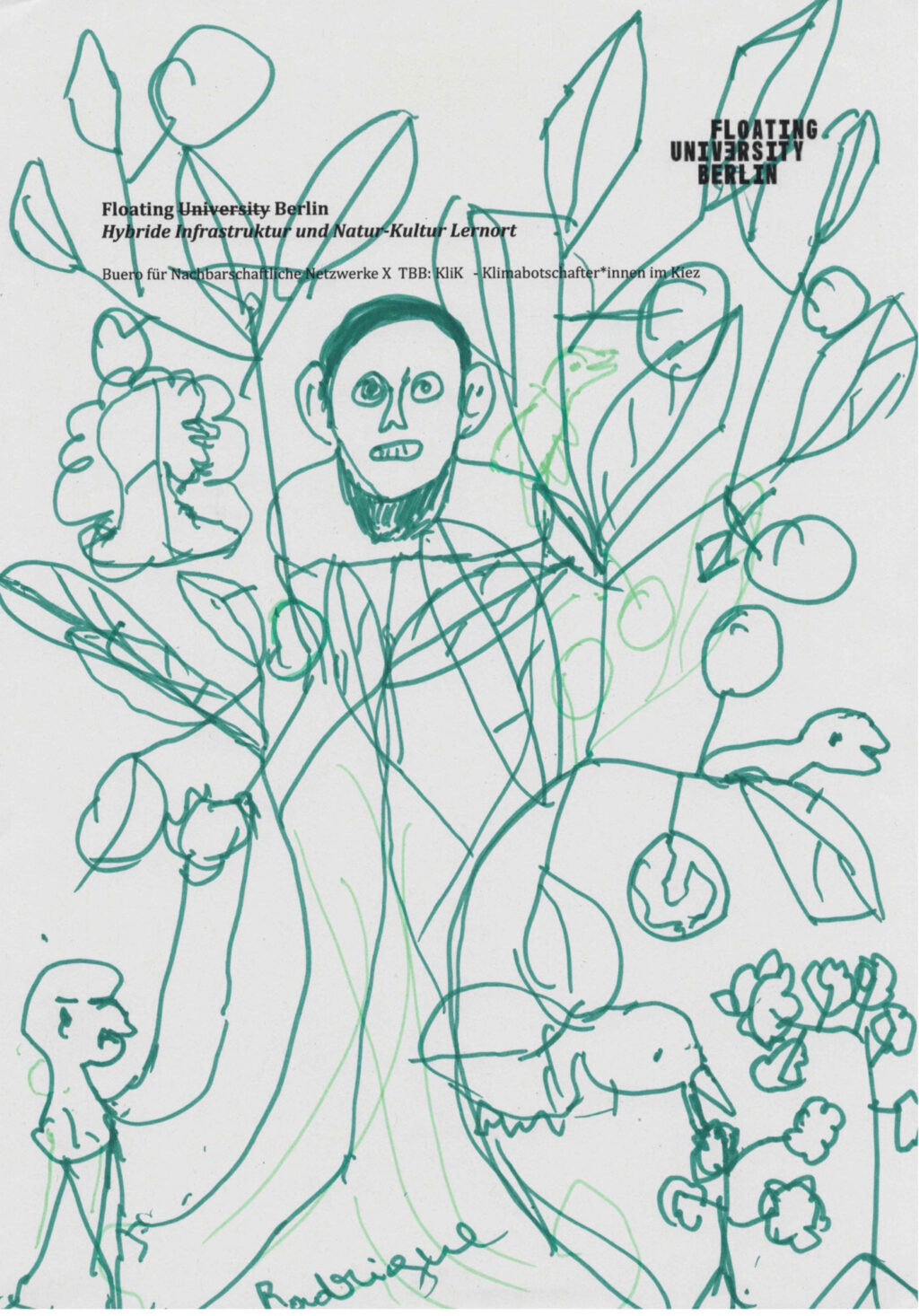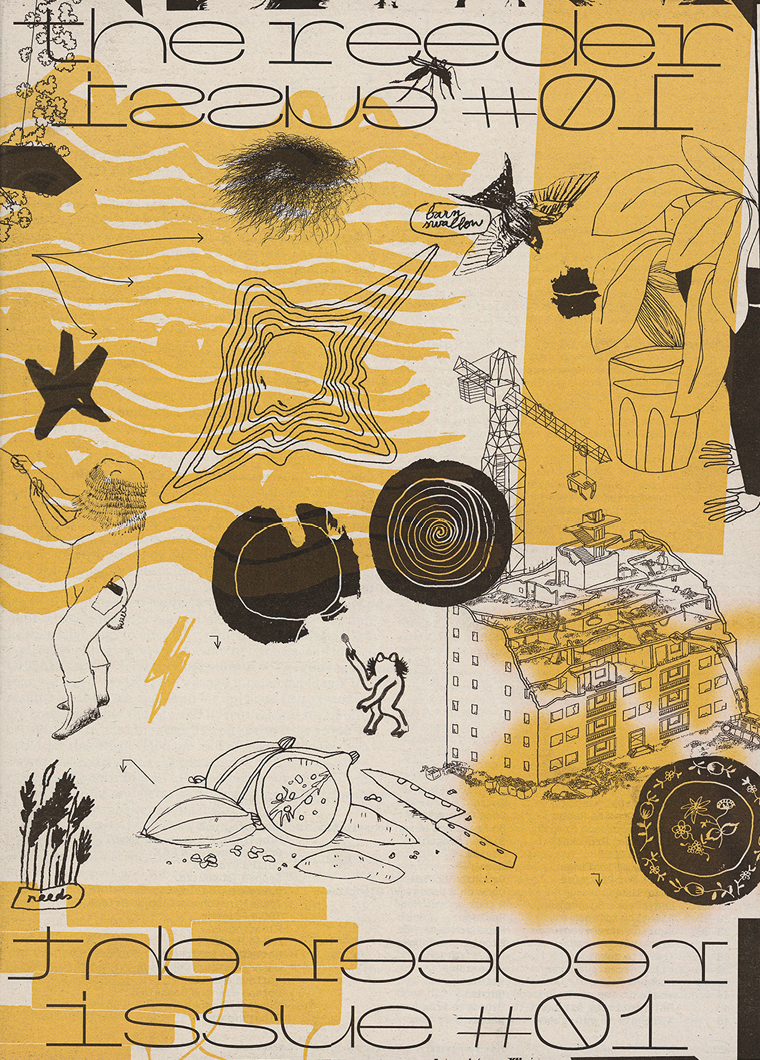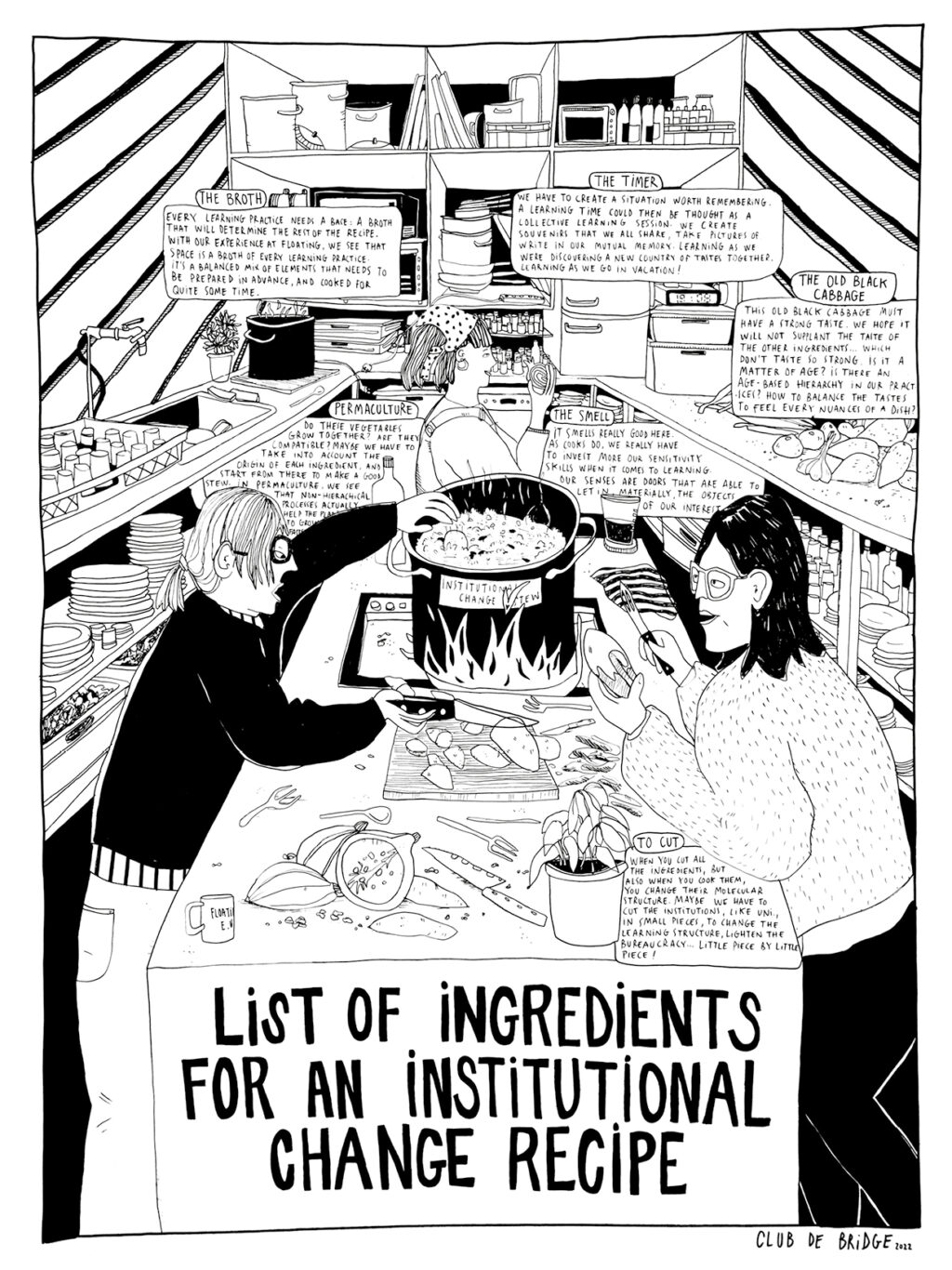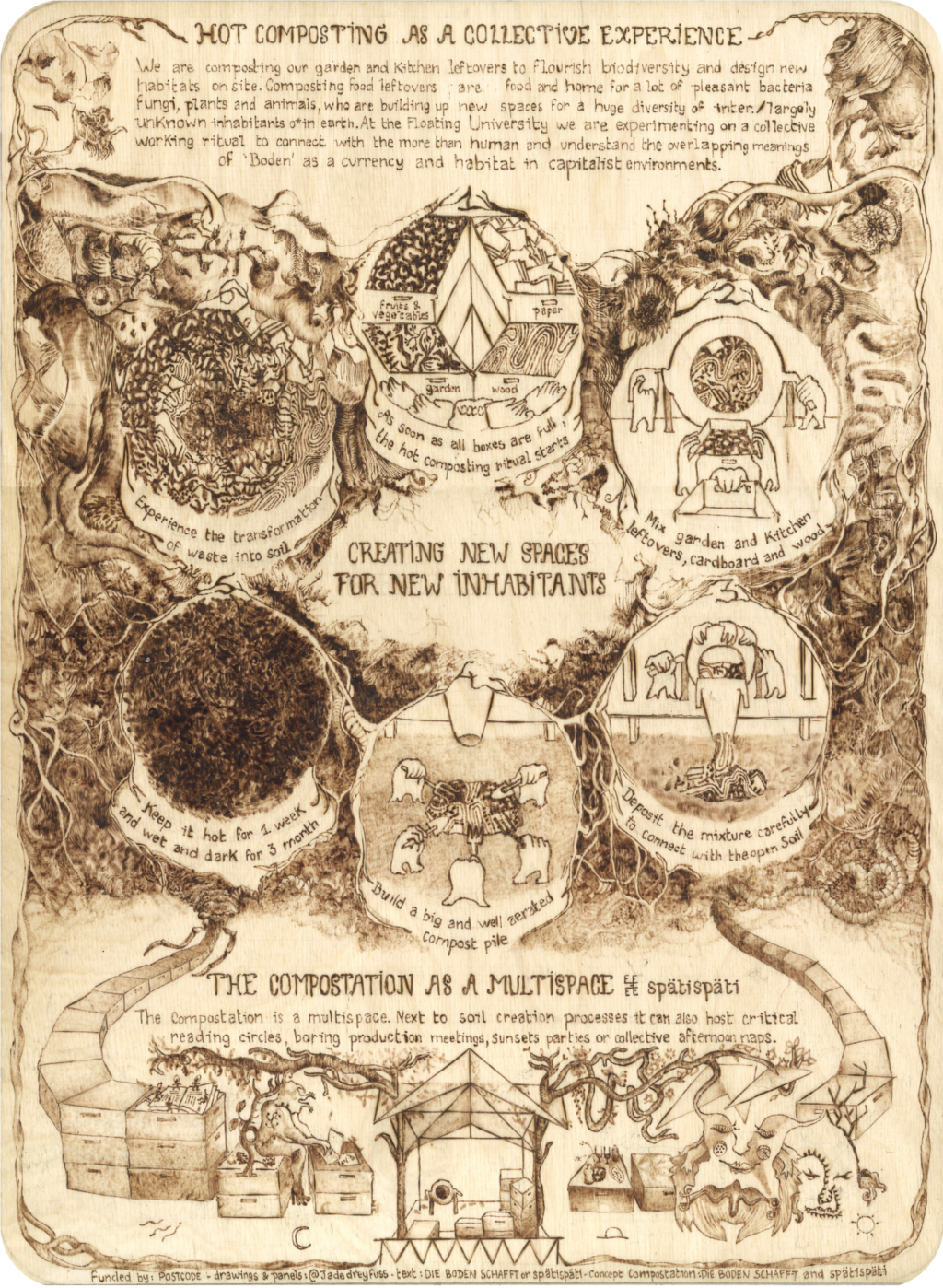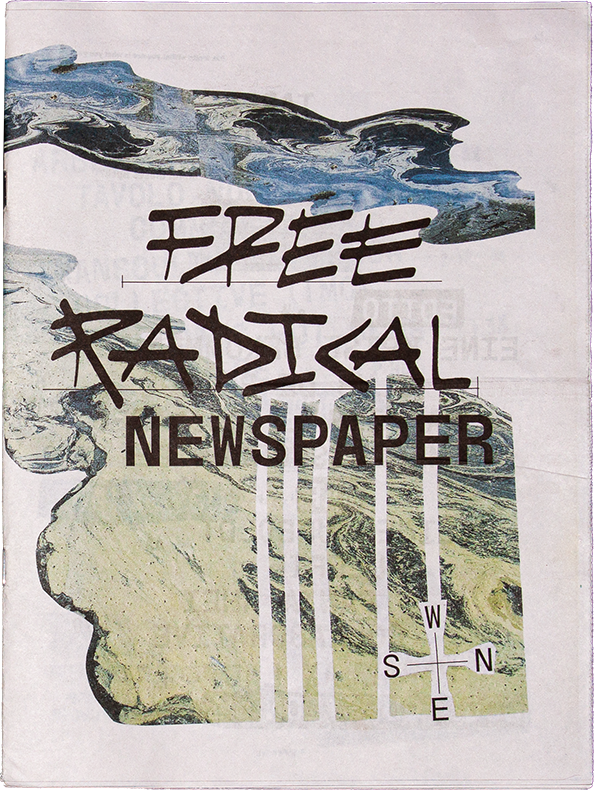Floating University Berlin
A Natureculture learning site
Urbane Praxis am und im Regenwasserrückhaltebeckens des ehemaligen Flughafens Berlin-Tempelhof seit 2018.
Der Monat Mai steht bei uns für den Beginn der Saison. Es ist die Zeit des Jahres, in welcher die Floating University langsam aus dem Winterschlaf erwacht. Nach einem langen Winter freuen wir uns darauf, endlich das Tor wieder zu öffnen und euch willkommen zu heißen.
Dieses Jahr wird jedoch wieder etwas anders ablaufen, da sich unsere finanziellen Mittel als zu gering erweisen, um das Projekt so durchzuführen, wie wir es in den letzten Jahren getan haben. Als gemeinnützige und unabhängige Organisation sind wir auf eine breite Palette von Zuwendungen des öffentlichen Sektors angewiesen, um sowohl unsere grundlegende Infrastruktur als auch unsere Programme zu finanzieren.
Bis auf weiteres bleibt der Ort im niedrigen Betrieb. Die Floating wird nur für bestimmte Aktivitäten geöffnet. Wir werden dazu unseren Kalender regelmäßig aktualisieren.
Informationen
Projekte
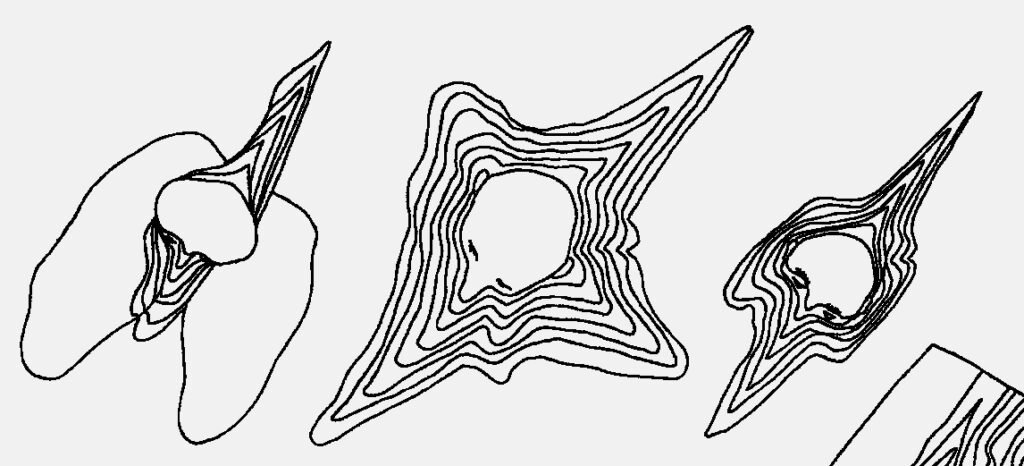
Space for Practice
Jeden Montag von 9 bis 11 Uhr, ab 5. Mai bis Mitte Juli 2025.
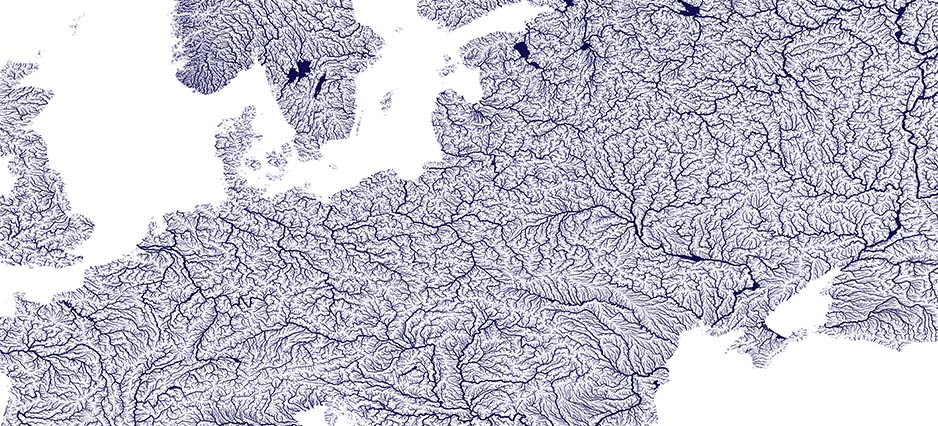
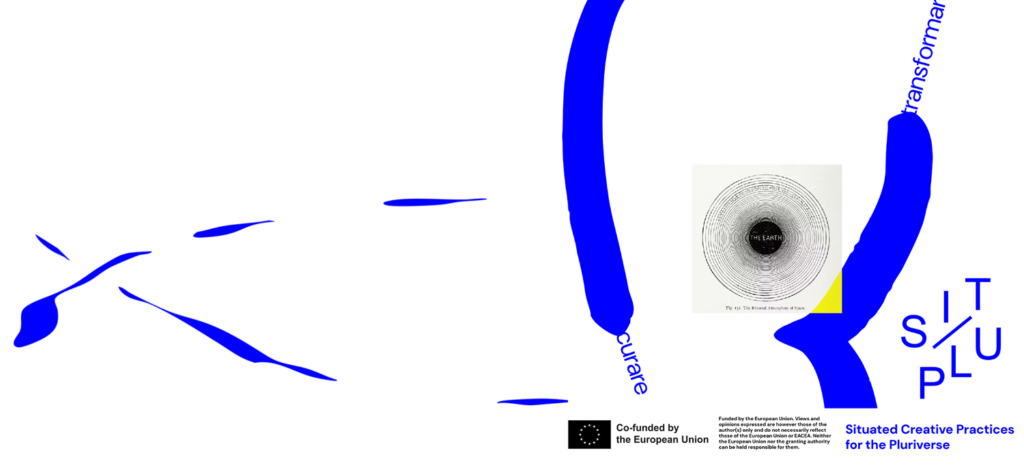
Voilà, It’s not floating
and it’s not a university!
A Conversation between Members of an Ex-titution
“The opaque is not the obscure.. it is that which cannot be reduced, which is the most perennial guarantee of participation and confluence” “We clamour for the right to opacity for everyone”
Édouard Glissant
When asked to describe the Floating University, as members of this multifaceted venture are often asked to do, the answer starts with an exhale and a pause, followed by a highly personal interpretation – the description of a shared experience as seen from a set of highly individualised viewpoints. That the Floating University allows for that level of complex communication of itself the fact there is no corporate script, that it is a deeply opaque infrastructure for each visitor to project onto, is the political essence of the project.
The Floating University requires a new language of practice and perhaps a new practice all together. A practice that negates the institutional way of doing things, challenges the need for unified transparencies of meaning, elaborates on processes of making and thinking together and frees spaces in the city to do so collectively.
Repositorium
Entdecke unsere letzten Funde
